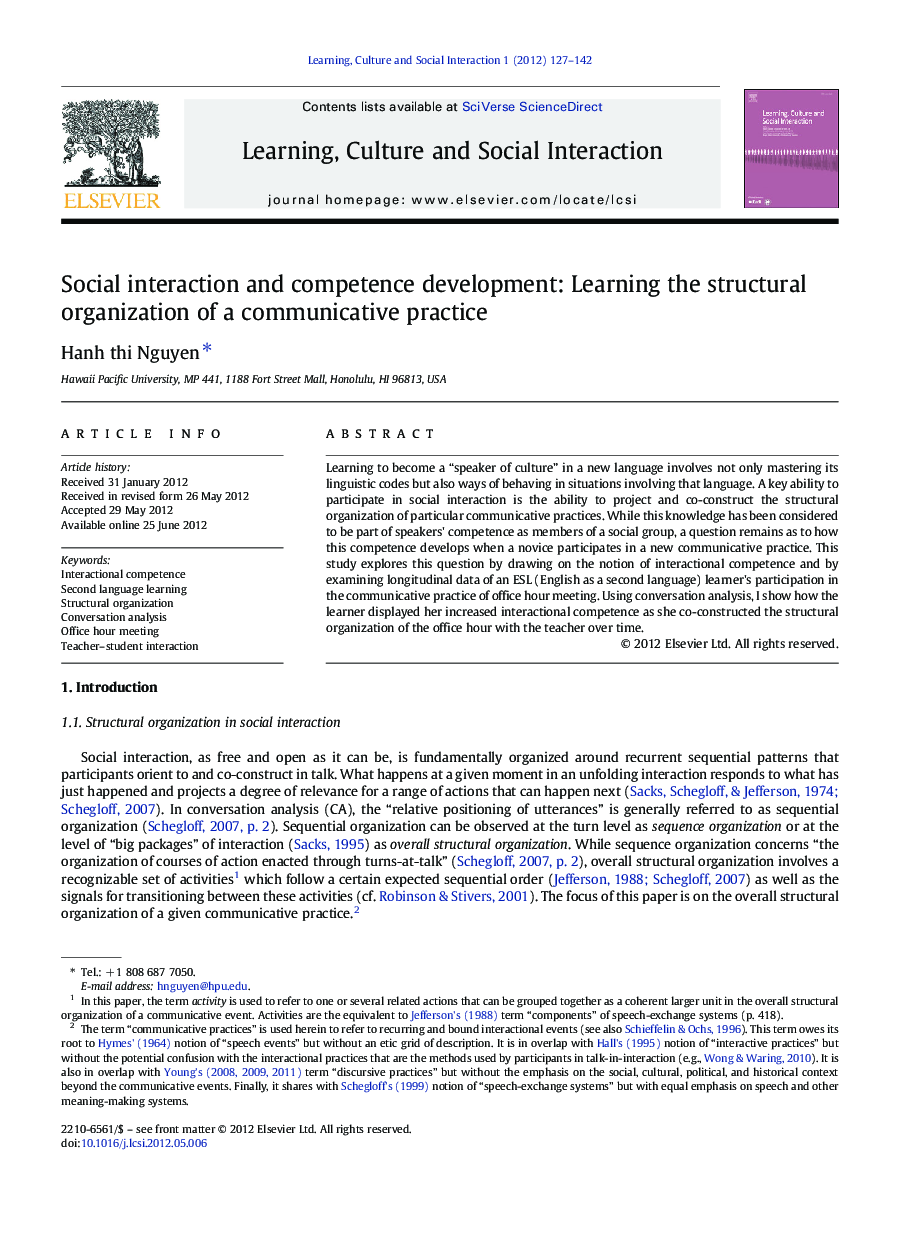| Article ID | Journal | Published Year | Pages | File Type |
|---|---|---|---|---|
| 364438 | Learning, Culture and Social Interaction | 2012 | 16 Pages |
Learning to become a “speaker of culture” in a new language involves not only mastering its linguistic codes but also ways of behaving in situations involving that language. A key ability to participate in social interaction is the ability to project and co-construct the structural organization of particular communicative practices. While this knowledge has been considered to be part of speakers' competence as members of a social group, a question remains as to how this competence develops when a novice participates in a new communicative practice. This study explores this question by drawing on the notion of interactional competence and by examining longitudinal data of an ESL (English as a second language) learner's participation in the communicative practice of office hour meeting. Using conversation analysis, I show how the learner displayed her increased interactional competence as she co-constructed the structural organization of the office hour with the teacher over time.
